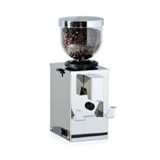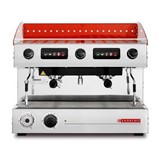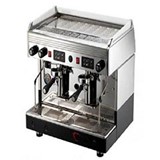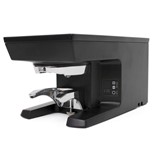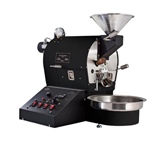Importance of Choosing the Right Commercial Coffee Machine
When it comes to running a successful coffee-centric business, selecting the right commercial coffee machine is paramount. Your choice in coffee equipment can significantly impact the quality of the beverages you serve, the efficiency of your operation, and ultimately, your bottom line. A well-chosen coffee machine not only ensures that you meet your customers' expectations but also contributes to the overall satisfaction and loyalty of your clientele.
The Objective of this Guide
This guide is designed to provide you with a comprehensive and objective overview of the factors to consider when purchasing a commercial coffee machine. We understand that making this decision is no small feat, and it requires a balance between various factors, from budget constraints to specific business needs. Our objective here is to equip you with the knowledge and insights necessary to make an informed decision, ensuring that you invest wisely in equipment that aligns perfectly with your unique business requirements
I. Defining Your Needs: Understanding Your Business's Coffee Demands
When it comes to selecting the right commercial coffee machine for your business, it all begins with a thorough understanding of your coffee demands. This section will delve into the critical aspects of defining your needs to ensure that the coffee machine you choose aligns perfectly with your business requirements.
A. Analyzing Your Customer Base
- Volume of Coffee Consumption
- To make an informed decision, start by quantifying the daily demand for coffee at your establishment. Consider factors such as the number of customers served and their typical coffee consumption habits.
- Calculate the number of cups of coffee your business needs to produce during peak hours, as well as during slower periods.
- Peak Hours and Rush Periods
- Espresso-Based Drinks
- Brewed Coffee
- Specialty Drinks
- Identify the peak hours when your business experiences a surge in customer traffic. During these times, coffee machines must perform optimally to meet high demand.
- Understand the duration of rush periods and how quickly your coffee machine should be able to prepare and serve coffee during these times.
B. Types of Coffee You Want to Offer
- Determine whether your menu includes espresso-based beverages like cappuccinos, lattes, or macchiatos. These drinks require specific machines capable of brewing espresso shots and steaming milk.
- Consider the popularity of these drinks among your customers and their potential impact on your sales.
- If brewed coffee is a staple in your business, assess the quantity of drip-brewed coffee you need to provide throughout the day.
- Think about whether you want a machine that can brew large batches or single cups of coffee on-demand.
- Explore whether your business specializes in unique coffee concoctions, such as cold brews or pour-over coffee. These specialty options may necessitate specialized equipment.
- Evaluate the demand for these specialty drinks and their contribution to your overall sales.
C. Space Constraints and Layout
- Examine the physical space available in your establishment for placing the coffee machine. Measure the dimensions to ensure a proper fit.
- Consider the layout of your workspace, including the proximity to water sources and power outlets, as these factors can affect the placement of the machine.
D. Staff Skill Level and Training Requirements
- Assess the skill level of your staff, particularly those responsible for operating the coffee machine. Some machines may require more training than others.
- Determine the availability of resources and time for training, as well as the ease of machine operation, which can impact staff efficiency.
II. Exploring Machine Types: Choosing the Right System for Your Menu
When it comes to selecting the ideal commercial coffee machine for your business, one of the first decisions you'll face is the type of machine that best suits your menu and operational needs. Commercial coffee machines come in various types, each designed to deliver specific coffee beverages efficiently. In this section, we'll delve into the options available and the considerations you should keep in mind.
A. Espresso Machines
- Automatic vs. Semi-Automatic: Espresso machines are the backbone of many coffee establishments, delivering the rich, concentrated coffee required for a wide range of beverages. You'll need to decide between automatic and semi-automatic models.
- Automatic Espresso Machines: These machines handle the entire brewing process, from grinding the coffee beans to extracting the espresso shot. They are user-friendly and require minimal barista skill, making them a great choice for businesses with a high staff turnover.
- Semi-Automatic Espresso Machines: With these machines, baristas have more control over the brewing process. They manually start and stop the shot, allowing for greater customization. This is the preferred choice for espresso enthusiasts who want to craft the perfect shot.
B. Drip Coffee Brewers
- Batch vs. Single-Cup Brewing: If your menu includes brewed coffee, drip coffee brewers are essential. You'll need to decide whether to go for batch brewing or single-cup brewing options.
- Batch Drip Coffee Brewers: These machines brew large quantities of coffee at once, making them ideal for high-volume settings or busy breakfast hours. They're efficient and can produce coffee for an entire pot.
- Single-Cup Drip Coffee Brewers: Single-cup brewers offer individual servings, allowing customers to choose their preferred coffee type and flavor. This is a great option for businesses with diverse coffee preferences.
- Specialty Coffee Options: Consider whether your drip coffee brewer can accommodate specialty coffee options, such as pour-over brewing or offering a selection of single-origin coffees. This can enhance the quality and variety of your brewed coffee offerings.
C. Specialty Coffee Machines
- Grinders and Brewers: For businesses focused on delivering the freshest coffee possible, specialty coffee machines that incorporate both grinding and brewing functions are essential. They ensure that each cup is made from freshly ground beans, enhancing flavor.
- Grinders: Invest in high-quality grinders that can consistently produce the grind size you need for various brewing methods, whether it's espresso or pour-over.
- Brewers: Specialty brewers are designed to optimize the extraction process, ensuring that your coffee's flavor profile is rich and nuanced.
- Cold Brew Systems: Cold brew coffee has gained immense popularity in recent years. If cold brew is part of your menu, consider a dedicated cold brew system. These machines are designed to steep coffee grounds in cold water over an extended period, resulting in a smooth and less acidic brew.
D. Combining Machine Types for Versatility
Sometimes, the perfect commercial coffee setup involves a combination of machine types to cater to a diverse customer base. For instance, pairing an automatic espresso machine with a single-cup drip brewer allows you to offer both convenience and customization to your patrons.
III. Budget Considerations: Finding the Balance Between Cost and Quality
Budget considerations play a pivotal role in the process of acquiring a commercial coffee machine. Finding the right balance between cost and quality is essential to ensure your investment aligns with your business's financial health and long-term objectives. In this section, we will delve into the various aspects of budgeting for a commercial coffee machine, emphasizing the need for a comprehensive approach.
A. Initial Investment
1. Machine Costs
- Commercial coffee machines come in a wide range of prices, depending on their type, features, and brand reputation.
- Espresso machines, for example, can vary significantly in cost, from affordable semi-automatic models to high-end automatic machines.
- Drip coffee brewers and specialty coffee equipment also have diverse price points to consider.
2. Additional Equipment
- Beyond the coffee machine itself, there are additional equipment costs to factor in.
- These may include grinders, water filtration systems, steamers, and other accessories necessary for your specific coffee offerings.
- Consider the compatibility and quality of these add-ons, as they contribute to the overall functionality of your coffee setup.
B. Operating Costs
1. Energy Efficiency
- Assessing the energy efficiency of your chosen coffee machine is crucial for ongoing cost management.
- Look for machines with energy-saving features like programmable standby modes or efficient heating elements.
- Energy-efficient machines not only reduce utility expenses but also align with sustainability goals.
2. Maintenance
- Regular maintenance is an inherent part of owning a commercial coffee machine.
- Maintenance costs can include cleaning supplies, replacement parts, and professional servicing.
- Factor in the ease of maintenance when selecting a machine, as complicated systems may lead to higher upkeep expenses.
C. Total Cost of Ownership
- Evaluating the total cost of ownership involves looking beyond the initial purchase price and considering all associated costs over the machine's lifespan.
- Calculate the sum of initial investment, operating costs, and expected maintenance expenses to arrive at a comprehensive figure.
- This holistic approach ensures a more accurate understanding of the financial commitment involved.
D. Financing Options and ROI Calculation
- Explore financing options that align with your budget and cash flow.
- Leasing or financing the equipment may provide flexibility and allow you to preserve capital for other business needs.
- Calculate the return on investment (ROI) for your chosen coffee machine by estimating increased sales and cost savings compared to your previous setup.
- This financial analysis will help you gauge the machine's contribution to your business's profitability.
IV. Size Matters: Matching Machine Capacity to Customer Flow
In the world of commercial coffee machines, ensuring that your equipment matches the flow of customers is paramount to a successful coffee service operation. This section of our guide delves into the sizing guidelines for both espresso machines and coffee brewers, offering insights into avoiding the pitfalls of overcapacity or undercapacity, and the importance of scalability for future growth.
A. Sizing Guidelines
1. Espresso Machine Capacity
- Espresso machines come in various sizes and configurations. To determine the right capacity for your business, consider the following factors:
- Customer Traffic: Analyze the average number of espresso-based drinks you serve during peak hours. A busy café will require a larger machine.
- Menu Complexity: If your menu features a wide range of espresso-based beverages, opt for a machine with multiple group heads to accommodate simultaneous brewing.
- Volume Control: Some machines allow you to adjust the volume of each shot. This flexibility can be crucial in managing output.
2. Coffee Brewer Output
- Coffee brewers also vary in terms of output capacity. Here's how to gauge the right size:
- Demand for Brewed Coffee: Determine how much brewed coffee your customers consume during peak hours. Take into account the size of your coffee pots or urns.
- Single-Cup vs. Batch Brewing: Decide whether single-cup brewing or batch brewing suits your operation best. Single-cup is ideal for customization but may require more equipment.
- Peak Hour Analysis: Consider the busiest times of day when calculating the needed brewer capacity. Having enough output during rush hours is essential.
B. Avoiding Overcapacity or Undercapacity
- Overcapacity: Investing in a coffee machine that exceeds your needs can lead to wasted resources, higher energy costs, and unnecessary complexity. It's essential to strike a balance between machine capacity and your actual demand.
- Undercapacity: Conversely, a machine that cannot keep up with customer flow can result in long wait times and dissatisfied customers. It may also limit your growth potential if your business expands.
C. Scalability for Future Growth
- When selecting a commercial coffee machine, it's wise to think beyond your current needs. Look for equipment that offers scalability, allowing you to adapt to increased demand in the future without replacing the entire setup.
- Consider the ability to add more group heads to an espresso machine or connect multiple brewers if your coffee shop or restaurant experiences substantial growth.
V. User-Friendly Features: Ensuring Ease of Operation and Training
When choosing a commercial coffee machine for your business, it's essential to prioritize user-friendliness to ensure smooth operation and efficient training of your staff. This section will delve into various aspects of user-friendly features without the use of promotional language or brand-specific references.
A. Intuitive User Interfaces
- Clear Controls: Opt for machines with straightforward and easily understandable controls. Intuitive interfaces reduce the learning curve for your staff and minimize the chances of errors during operation.
- Customization: Look for machines that allow you to customize settings such as brew strength, temperature, and shot volume. This flexibility enables you to tailor the coffee to your customers' preferences.
- Display Screens: Machines with informative display screens provide real-time feedback, making it easier for baristas to monitor brewing processes and adjust parameters as needed.
B. Cleaning and Maintenance
- Accessible Components: Choose machines with easily accessible parts and components for regular cleaning and maintenance. This not only extends the lifespan of your equipment but also simplifies upkeep for your staff.
- Cleaning Alerts: Some advanced machines feature built-in cleaning alerts and reminders, helping you adhere to maintenance schedules and avoid potential issues caused by neglect.
- Dishwasher-Safe Parts: Consider machines with dishwasher-safe components, such as drip trays and water reservoirs, to streamline the cleaning process and maintain hygiene standards.
C. Staff Training and Onboarding
- Comprehensive Manuals: Ensure that the manufacturer provides comprehensive user manuals and training materials. These resources are invaluable for onboarding new staff members and keeping everyone informed about the machine's operation.
- Hands-On Training: Invest in hands-on training for your baristas. Many manufacturers offer training programs to familiarize your staff with the machine's nuances and best practices.
- Practice Sessions: Encourage your team to practice regularly, especially during off-peak hours, to build confidence and proficiency in using the coffee machine.
D. Technical Support and Resources
- 24/7 Support: Check if the manufacturer offers 24/7 technical support. In case of any issues or emergencies, having access to expert assistance can prevent costly downtime.
- Online Resources: Look for manufacturers that provide online resources, such as video tutorials and troubleshooting guides. These resources can be valuable for your staff to address common issues quickly.
- Spare Parts Availability: Consider the availability of spare parts and their cost. Machines with readily available and reasonably priced replacement parts are easier to maintain in the long run.
VI. Long-Term Value: Evaluating Durability and Warranty
When investing in a commercial coffee machine, you want to ensure that your choice provides long-term value for your business. This involves considering the machine's build quality, brand reputation, warranty coverage, and even predictive maintenance considerations. In this section, we'll delve into each of these aspects to help you make an informed decision.
A. Machine Build Quality
- Materials: Examine the materials used in the construction of the coffee machine. Stainless steel and high-quality plastics are often preferred for their durability.
- Components: Evaluate the quality of internal components such as boilers, pumps, and group heads. Premium components can contribute to a longer lifespan.
- Testing Standards: Check if the machine meets industry standards for durability and safety. Certifications like NSF and UL can be indicative of a well-built machine.
B. Brand Reputation and Reviews (without mentioning specific brands)
- Research: Conduct thorough research on the brand's history and reputation within the commercial coffee industry. Look for brands known for their reliability and customer satisfaction.
- Customer Reviews: Read customer reviews and testimonials about the brand's commercial coffee machines. This can provide valuable insights into real-world performance.
- Industry Recognition: Consider if the brand has received any industry awards or recognition for their products. This can be a testament to their quality.
C. Warranty Coverage and Support
- Warranty Duration: Check the duration of the warranty offered by the manufacturer. Longer warranties often indicate the manufacturer's confidence in their product's durability.
- Coverage Details: Examine the specific components and issues covered by the warranty. Some warranties may cover parts and labor, while others may only cover certain components.
- Support Services: Inquire about the manufacturer's customer support services. Prompt and helpful support can be crucial in addressing any issues that may arise.
D. Predictive Maintenance Considerations
- Maintenance Guidelines: Review the manufacturer's recommended maintenance schedule. Regular maintenance can significantly extend the lifespan of your coffee machine.
- Availability of Parts: Check the availability of replacement parts for the machine. If components are readily accessible, it can expedite repairs and minimize downtime.
- Technical Resources: Assess the availability of technical resources, such as manuals and online support, to aid in maintenance and troubleshooting.
In conclusion, choosing the ideal commercial coffee machine for your business is a multifaceted decision that requires careful consideration of various factors. Understanding your specific coffee demands, budget constraints, and the importance of water quality management are fundamental starting points. Exploring the different types of coffee machines and their compatibility with your menu is essential, as is ensuring that the machine's capacity aligns with your customer flow. Prioritizing user-friendly features and long-term durability, as well as taking steps toward sustainability and regulatory compliance, can contribute to the overall success of your coffee-centric venture. Lastly, by diligently comparing brands and models, you can make a well-informed decision that ultimately enhances the quality of the coffee you serve, the efficiency of your operation, and the satisfaction of your customers.


